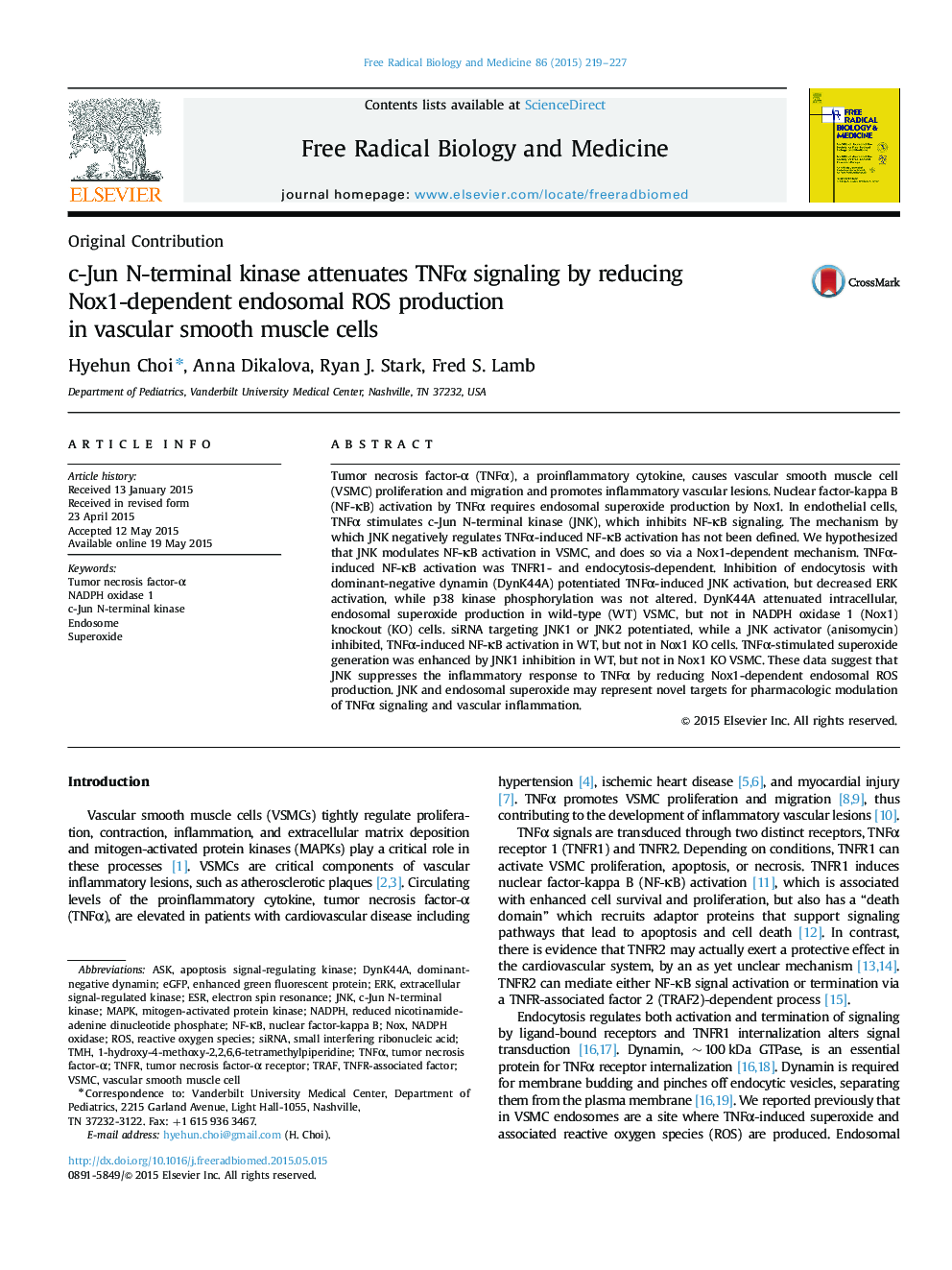| Article ID | Journal | Published Year | Pages | File Type |
|---|---|---|---|---|
| 8268979 | Free Radical Biology and Medicine | 2015 | 9 Pages |
Abstract
Tumor necrosis factor-α (TNFα), a proinflammatory cytokine, causes vascular smooth muscle cell (VSMC) proliferation and migration and promotes inflammatory vascular lesions. Nuclear factor-kappa B (NF-κB) activation by TNFα requires endosomal superoxide production by Nox1. In endothelial cells, TNFα stimulates c-Jun N-terminal kinase (JNK), which inhibits NF-κB signaling. The mechanism by which JNK negatively regulates TNFα-induced NF-κB activation has not been defined. We hypothesized that JNK modulates NF-κB activation in VSMC, and does so via a Nox1-dependent mechanism. TNFα-induced NF-κB activation was TNFR1- and endocytosis-dependent. Inhibition of endocytosis with dominant-negative dynamin (DynK44A) potentiated TNFα-induced JNK activation, but decreased ERK activation, while p38 kinase phosphorylation was not altered. DynK44A attenuated intracellular, endosomal superoxide production in wild-type (WT) VSMC, but not in NADPH oxidase 1 (Nox1) knockout (KO) cells. siRNA targeting JNK1 or JNK2 potentiated, while a JNK activator (anisomycin) inhibited, TNFα-induced NF-κB activation in WT, but not in Nox1 KO cells. TNFα-stimulated superoxide generation was enhanced by JNK1 inhibition in WT, but not in Nox1 KO VSMC. These data suggest that JNK suppresses the inflammatory response to TNFα by reducing Nox1-dependent endosomal ROS production. JNK and endosomal superoxide may represent novel targets for pharmacologic modulation of TNFα signaling and vascular inflammation.
Keywords
NF-κBreduced nicotinamide-adenine dinucleotide phosphateTMHERKNADPHeGFPESRJnkc-Jun N-terminal kinaseMAPKNOxROSsiRNAsmall interfering ribonucleic acidNADPH oxidaseElectron spin resonanceNuclear factor-kappa BASKenhanced green fluorescent proteinmitogen-activated protein kinaseextracellular signal-regulated kinaseapoptosis signal-regulating kinaseReactive oxygen species
Related Topics
Life Sciences
Biochemistry, Genetics and Molecular Biology
Ageing
Authors
Hyehun Choi, Anna Dikalova, Ryan J. Stark, Fred S. Lamb,
